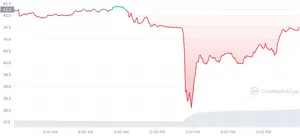In October, an exploiter was able to manipulate collateral prices to extract tokens from the Mango Markets defi project, ultimately resulting in a $116 million loss for the project. The exploiter then tried to create a governance proposal in which he would agree to return some of the stolen funds in exchange for an agreement that the protocol would not try to freeze the tokens or pursue criminal charges.It quickly became apparent that a man named Avraham Eisenberg was behind the exploit. In screenshots leaked from a conversation in a private Discord channel shortly before the attack, Eisenberg talked about the exploit he had planned. "I'm investigating a platform that could maybe lead to a 9 figure payday. Should I do it?" he wrote. When someone replied, "unles[s] it is highly illegal", Eisenberg responded: "Are there rules these days?" When someone suggested responsibly disclosing the vulnerability to the protocol, Eisenberg refused, saying the bug bounty was likely to be too small.
Eisenberg later owned up to the attack, tweeting a thread in which he wrote that he "was involved with a team that operated a highly profitable trading strategy last week. I believe all of our actions were legal open market actions, using the protocol as designed, even if the development team did not fully anticipate all the consequences of setting parameters the way they are."
The feds apparently disagreed with his evaluation, and arrested Eisenberg in Puerto Rico on December 26. He is charged with commodities fraud and commodities manipulation.









































